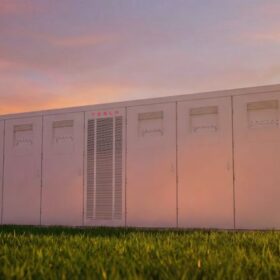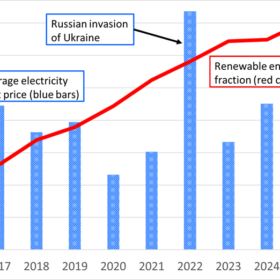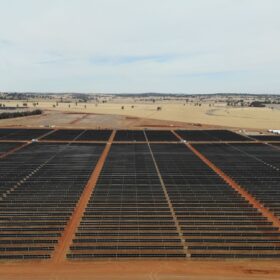Drawing on a $100 million (USD 65 million) commitment from the CEFC, Wesfarmers, owners of Bunnings, Officeworks and businesses across Australia and New Zealand, is aiming to fast-track decarbonisation measures across its operations by increasing the use of clean energy technologies.
The CEFC finance will support Wesfarmers investment in a range of distributed energy resources (DER) across select businesses in Australia. The measures will include rooftop solar, battery storage, energy efficiency initiatives, an electric vehicle smart charging infrastructure pilot, and a study to accelerate decarbonisation at WesCEF.
CEFC Executive Director Richard Lovell said through this investment, CEFC capital supports an active approach to decarbonisation by a major Australian company.
“By focusing on using its existing building assets to support renewable energy generation and energy storage, which are crucial for energy demand management, Wesfarmers continues to execute its active decarbonisation strategy to reduce its direct emissions,” Lovell said.
By using DER to support energy demand flexibility, Wesfarmers will be able to proactively manage its energy consumption across its retail sites, making energy use more efficient while also facilitating onsite renewable energy generation and storage.
Wesfarmers expects to have installed or upgraded facilities with onsite renewable energy generation technologies at select Bunnings and Officeworks sites by the end of 2025.
CEFC CEO Ian Learmonth said: “Wesfarmers is a market leader in retail, with its Bunnings and Officeworks brands well loved Australia wide. We’re proud to be working with Wesfarmers as it takes a proactive approach to its emissions profile.
“In addition to using its iconic retail sites to produce its own renewable energy, Wesfarmers is also investing in critically required battery storage and energy efficiency technologies so it can better manage the way it uses that energy. It’s a practical and speedy approach to cutting its carbon footprint and a welcome step by such a respected Australian business.
“Many Australians would have enjoyed a Bunnings Saturday sausage sizzle or taken the path to Officeworks for those back-to-school necessities. At selected sites they will soon be able to add vehicle charging to their store visits while enjoying solar-powered air conditioning.”
Wesfarmers Chief Financial Officer Anthony Gianotti said: “We have long managed our businesses with climate and carbon awareness and we are committed to continuing to take action to reduce our impact on the environment. We are proud to be working again with the CEFC to accelerate our decarbonisation activities.”
“Through this investment, CEFC capital supports an active approach to decarbonisation by a major Australian company,” Lovell said.
“By focusing on using its existing building assets to support renewable energy generation and energy storage, which are crucial for energy demand management, Wesfarmers continues to execute its active decarbonisation strategy to reduce its direct emissions.
“This market-leading approach also has the potential to deliver broader benefits, strengthening the Australian energy market by increasing the deployment of clean energy resources, which can help stabilise the grid and increase energy efficiency.”
The retail sector is one of the more energy-intensive industries in Australia. It accounts for around 50% of energy use in the commercial property sector and 5% of Australia’s greenhouse gas emissions.1
The Australian Energy Market Operator notes that batteries, Virtual Power Plants and EVs can reduce grid demand if their charging and discharging can be coordinated with the grid, reducing the need for more utility scale investment.2 The World Economic Forum projects that businesses that fail to adapt to climate risks could lose up to 7 per cent of annual earnings by 2035.3
The CEFC previously invested $25 million to support the first Australian dollar denominated sustainability linked bonds issued by Wesfarmers in 2021, with targets linked to emissions reductions in its operations, as a part of a $1 billion bond issue.






By submitting this form you agree to pv magazine using your data for the purposes of publishing your comment.
Your personal data will only be disclosed or otherwise transmitted to third parties for the purposes of spam filtering or if this is necessary for technical maintenance of the website. Any other transfer to third parties will not take place unless this is justified on the basis of applicable data protection regulations or if pv magazine is legally obliged to do so.
You may revoke this consent at any time with effect for the future, in which case your personal data will be deleted immediately. Otherwise, your data will be deleted if pv magazine has processed your request or the purpose of data storage is fulfilled.
Further information on data privacy can be found in our Data Protection Policy.